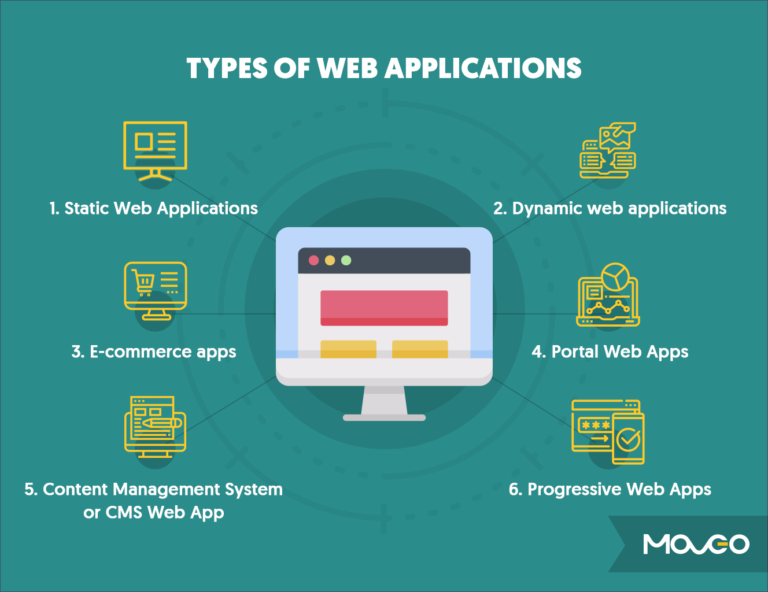Unlocking the Potential of Collaborative Digital Marketing Strategies
Key Takeaways
- Collaborative digital marketing enables businesses to synergize expertise for a more significant impact.
- By offering scalable and cost-effective solutions, White-label link-building services can significantly benefit SEO agencies.
- Content quality is an indispensable part of link-building, driving authority and engagement.
- Measuring the success of collaborations is critical for understanding their impact and optimizing future strategies.
The Importance of Digital Marketing Collaboration in Modern Business
In our connected, digital-first world, enterprise silos are no longer just a structural nuisance; they are a strategic handicap. Collaboration is a crucial operational component that can make or break a campaign, not just a catchphrase in the current marketing playbook. As businesses look to scale and adapt to the fast-evolving digital ecosystem, pooling resources, expertise, and digital footprints with other entities has become indispensable. Sharing insights, data, best practices, and even audiences can lead to campaigns with amplified impact and reach, delivering a substantial edge over isolated marketing efforts. Digital marketing collaboration is particularly effective in maximizing the potential of SEO strategies, where an intricate tapestry of on-site and off-site factors can significantly alter a brand’s online visibility. An essential component to bolstering this visibility is the strategic implementation of link-building endeavors. Such initiatives require specific skills, tools, and dedicated resources. Agencies often seek partnerships with specialized service providers to streamline their efforts. By leveraging how white label link building services benefit SEO agencies, they can remain focused on their core competencies while ensuring that the under-the-hood mechanics of SEO are efficiently managed on behalf of their clients.
Collaboration in the realm of digital marketing extends beyond mere convenience. It serves as a breeding ground for innovation, wherein cross-pollination of ideas and strategies between different entities fosters creativity that is hard to achieve in isolation. Experts have shared insights demonstrating the power of collaboration, with case studies showing that cooperative projects deliver richer experiences for consumers and drive substantial improvements in campaign performance.
Understanding Link-building and Its Role in SEO
Link-building is a precise science with a sprinkle of art—crafting the digital pathways that connect one website to another. It’s an invaluable component of search engine optimization (SEO), signaling to search engines that a website is an authority worthy of citation. Each backlink serves as an endorsement, a slight nod to the quality and relevance of the content within. However, not all backlinks are created equal. The authority of the linking site influences the value attributed to a backlink by search algorithms, the relevance of the content between the linked and the linking pages, and the natural manner in which these links are integrated into the content.
Deploying a robust link-building strategy is crucial for effective SEO. The gear is the engine responsible for a website’s upward trajectory in search engine results pages (SERPs). However, creating a network of high-quality backlinks is a complex and relentless pursuit. It requires meticulous planning, an understanding of the competitive landscape, and industry-wide best practices that marry technical SEO with compelling content.
The Mechanics of White-Label Link-Building Services
White-label services are akin to the unseen cogs in a vast machine, working diligently behind the scenes while allowing another brand to shine in the spotlight. In the context of SEO and link-building, white-label services refer to those carried out by a third-party company, only to be rebranded and presented as though produced by the hiring company itself. White-label link-building services are invaluable for agencies that aim to deliver a full spectrum of digital marketing services without the associated overhead of building and maintaining an extensive in-house team.
Through this strategic outsourcing, businesses can ensure that a critical component of their client’s digital presence—the generation of authoritative backlinks—is handled with expertise and efficiency. White-label services facilitate the seamless integration of campaigns, thus maintaining the front-facing brand’s continuity and appearance of self-sufficiency while capitalizing on the specialized skills of external partners. This method can empower businesses to offer scalable SEO solutions that meet client demands without compromising quality or consistency.
Strategic Partnerships: A Key to Successful Marketing Campaigns
Strategic partnerships are the keystones of a successful campaign within the digital marketing sphere. The collaborative fusion of different but complementary organizations can lead to a synergized effort that exponentially magnifies the effectiveness of campaigns. Approaching partnerships to find entities whose offerings can dovetail with one’s business objectives can make the difference between a good marketing campaign and a great one. Digital marketing, with its inherent emphasis on connectivity and engagement, is particularly well-suited to exploiting the benefits of partnership.
A scan of several case studies on collaborative marketing ventures reveals a common thread: partnerships are most successful when there’s a shared vision and a set of mutually beneficial goals. Finding the right partners, establishing mutual trust, and co-crafting methodologies and tactics is non-trivial. Nevertheless, with discernment and strategic planning, partnerships can yield innovative marketing campaigns that reach wider audiences, convey more persuasive messages, and drive meaningful engagement beyond the sum of what individual entities could achieve alone.
Leveraging Expertise: Why Outsourcing Can Be Your Secret Weapon
In a digital marketplace saturated with content and competition, the depth of expertise can become a deciding factor in an organization’s success. Outsourcing specific segments of one’s marketing strategy to specialized entities allows businesses to tap into a wealth of experience and skills without the commitment of permanent internal resources. For example, SEO is a field that requires ongoing attention and adjustment in response to the ever-changing algorithms of search engines. By entrusting this intricate work to experts in the field, companies can leverage the nuanced understanding of these professionals to enhance their digital footprint.
It’s a strategic play that must be utilized judiciously. Knowing which aspects of digital marketing to outsource—such as the myriad technicalities of link-building—versus what to retain in-house depends on an array of factors, including internal competencies, available resources, and overall marketing objectives. Finding the ideal balance is crucial. Outsourcing partners need to be chosen based on their ability to produce results and their propensity to align with the hiring company’s ethical standards and brand messaging.
The Significance of High-Quality Content in Link-Building: Content Is King
If link-building is the backbone of SEO, then content is the soul. High-quality, valuable content is fundamental for attracting authoritative backlinks. It is the currency with which a website trades in the internet economy. Even the most aggressive link-building strategy can continue with content that engages, informs, and provides value to the reader. What sets apart successful SEO and link-building campaigns is the ability to marry technical optimization with content that resonates with the intended audience.
Creating a content strategy that works with link-building initiatives necessitates thoroughly comprehending target audiences and the kinds of content most likely to be cited and shared. It’s a nuanced strategy—simultaneously seed the digital landscape with content that appeals to potential linking partners while ensuring that all content is optimized for search discovery. Promotion and distribution of this content across the proper channels, be it social media platforms, forums, or other relevant online communities, amplifies its reach and increases the potential for natural backlink generation.
Analyzing the Impact: How to Measure the Success of Collaboration Efforts
It takes a careful balancing act between art and science to determine the effectiveness of a collaborative marketing strategy. It begins with clearly defined objectives and performance indicators aligned with business goals. Before starting a collaborative project, baseline metrics should be established to provide a standard by which to measure project progress. Periodic assessments allow collaborators to pivot and adapt strategies using real-time data.
Digital dashboards, analytics tools, and KPI tracking systems are an indispensable part of the toolkit for analyzing the impact of collaborations. They collate data to provide a granular view of traffic growth, lead generation, conversion rates, and customer engagement metrics. It’s not just about numbers—qualitative feedback from partners and customers can also shed light on the intangible benefits of collaborative efforts, such as brand perception and customer loyalty.
Future Trends in Digital Marketing Collaboration
The dynamic nature of digital marketing is mirrored in the ever-evolving landscape of collaborative trends. The capacity for rapid adaptation and adoption of new technologies is essential. As digital channels proliferate and new platforms emerge, businesses that position themselves at the forefront of these trends can leverage collaborative opportunities to create cutting-edge campaigns. Whether through the integration of AI-driven analytics, the exploration of new social media territories, or the advent of virtual and augmented reality experiences, pioneering collaborative efforts will likely yield groundbreaking results. By watching emerging technologies and collaboration methods, businesses can stay competitive and enhance their ability to provide unique and captivating experiences to their target audiences.
Challenges and Solutions in Collaborative Digital Marketing
Even the best-laid plans for collaborative marketing are susceptible to challenges. Diverging organizational cultures, misalignments of project goals, and potential communication breakdowns can derail cooperative efforts. Proactivity is key to avoiding such pitfalls; anticipating challenges and having contingency plans are necessary for preparation. Establishing an open line of communication from the onset and clearly understanding each party’s expectations creates a solid foundation for effective collaboration. Developing a unified communication strategy that addresses these potential challenges can help maintain alignment amongst partners. Employing collaborative tools that ensure transparency and ease of access to information can also mitigate misunderstandings and streamline workflow. When parties are focused on clearly understanding their shared goals, setbacks can be more easily navigated, and strategies can be adjusted in unison.
Crafting a Collaborative Digital Marketing Strategy for Your Business
Developing a collaborative digital marketing strategy requires a structured yet flexible framework. Start by clearly articulating your business objectives and identifying the core competencies needed. Locating the right partners—those who can fill the gaps in expertise or resources—is vital. A collaborative strategy should reinforce the strengths of each partner, providing a complementary skill set that can be adapted and scaled as the campaign evolves. Along with building an effective marketing strategy, it’s imperative to set up processes for smooth inter-company collaboration, leveraging joint resources for a harmonious and successful partnership. Effective collaboration is not a set-it-and-forget-it system. It needs continuous nurturing, re-evaluation, and optimization. Collecting and analyzing data on collaboration outcomes informs future adjustments, making each subsequent cooperative endeavor more streamlined and impactful.



